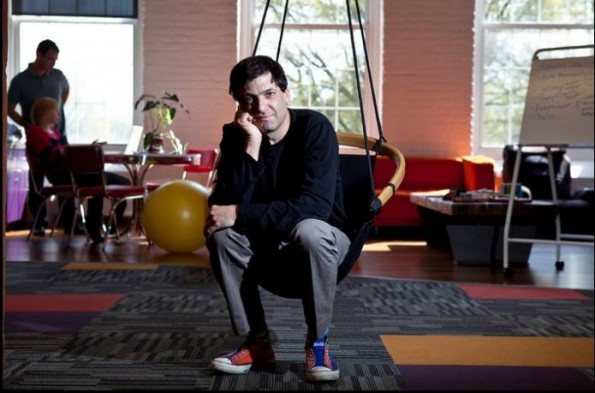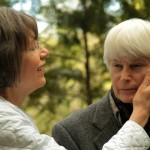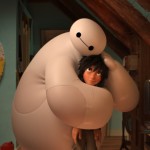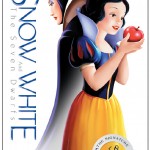
“How many of you have told a lie since the beginning of 2014?” asks Dan Ariely, Duke University professor of psychology and behavioral economics. Nearly every hand in the lecture hall goes up. He asks a follow up question, “How many of you think of yourselves as honest, wonderful people?” Nearly every hand remains raised.
It seems pretty obvious to me that an occasional transgression or misdeed does not make one a bad person. After all, who doesn’t mess up occasionally? However, Ariely is interested in studying what he has named “the fudge factor” — “the ability to misbehave and think of ourselves as good people,” something more or less synonymous with rationalization, which Ariely has focused on as it relates to lying.
As Ariely points out, rationalization occurs in many areas of life from taxes, to speeding, to filling out online profiles. Initially Ariely thought lying was just another mistake that people occasionally made. His experiments convinced him that as long as people can justify a lie, usually with an argument like, “Everyone else is doing it,” “It harms no one,” or “It’s for a good cause,” lying is very prevalent and unsettlingly easy for many people.
(Dis)Honesty – The Truth About Lies (★★★★) alternates between documenting the results of Ariely’s matrix experiments, a series of tests designed to study how often and how much people lie, and interviewing several people who were caught in painful lies which they had rationalized. Director Yael Melamede expertly balances the segments of Ariely and his fellow scientists with those of the interviewees confessing their lies.
The matrix experiments were a test of twenty simple yet time-consuming math problems, all of which would be easily solvable if one had enough time, but Ariely and his team only gave the participants five minutes. When the test was completed, the participants self-corrected it, came to the front of the room, placed the test in a shredder, and reported how many problems they got correct. For each correct answer, they received one dollar. The catch was the shredder only shredded the edges of the paper, so the scientists could check the honesty of each participant.
What really stood out most to me was this statistic: among the over 40,000 participants only twenty falsely claimed to have solved all twenty problems and as a result stole $400. Nearly 28,000 people told small white lies, claiming to have solved one or two additional problems. They stole $50,000 from the project. While I have never subscribed to the mentality that small white lies hurt no one, I certainly thought that bigger lies had a more pernicious effect. It was eye-opening to see the cumulative effect of many small lies. Similarly, while no amount of white lies will turn into a big lie, the more white lies one tells, the easier it becomes to tell bigger and bigger lies.
Another part of the film that really struck me was an anecdote Ariely told about interviewing several golfers. He asked them if they would ever pick up a ball and move it four inches for a better swing. They were appalled at the thought. He then asked them if they would look the other direction and “accidentally” bump the ball with their foot into a better position. The answer was a unanimous yes. It may be a truism that people lie more readily when they distance themselves from the lie, but (Dis)Honesty puts that truism into startling relief.
While the ease with which many people lie is disturbing, the film also documents that human beings are still deeply moral, and if a lie can be connected to another violation of ethics, it will not be told. During the matrix experiments, when the participants were told that the test was part of a university honor code, no one lied about their results. A famous G. K. Chesterton quote states, “Men do not differ much about what things they will call evils; they differ enormously about what evils they will call excusable.” (Dis)Honesty may suggest that lying is universally regarded as an excusable evil, but I appreciated the note of optimism that if lying can be tied to another evil, it will be avoided.
In addition to the matrix experiments, the filmmakers also interview an athlete, an advertiser, stockbrokers, mothers, a college admission dean, and a basketball referee who were all caught in lies that they thought would harm no one and they could get away with. Short clips with the interviewees frame both ends of the film, and that serves as a reminder both of how easy it can be to lie once we rationalize it and the far reaching unforeseen consequences of a lie. While most people can be thankful that the small lies they have told will not haunt them like the lies of the interviewees, (Dis)Honesty makes unsettling comparisons between small “harmless” everyday lies and major lies which have legal ramifications.
In my experience, it is easy to detest lies, or any ethical violations, which one would personally never be tempted to commit. One of (Dis)Honesty‘s greatest strengths is the way it reminds the viewer that all lies (and by extension, all moral transgression) are related, and the straightforward manner in which it presents that truth is as disconcerting as it should be.
Coming in May: Ken’s interview with director Yael Melamede at the 2015 Full Frame Documentary Film Festival at Christianity Today Movies & TV.
—
Evan Cogswell blogs about film at Catholic Cinephile.












